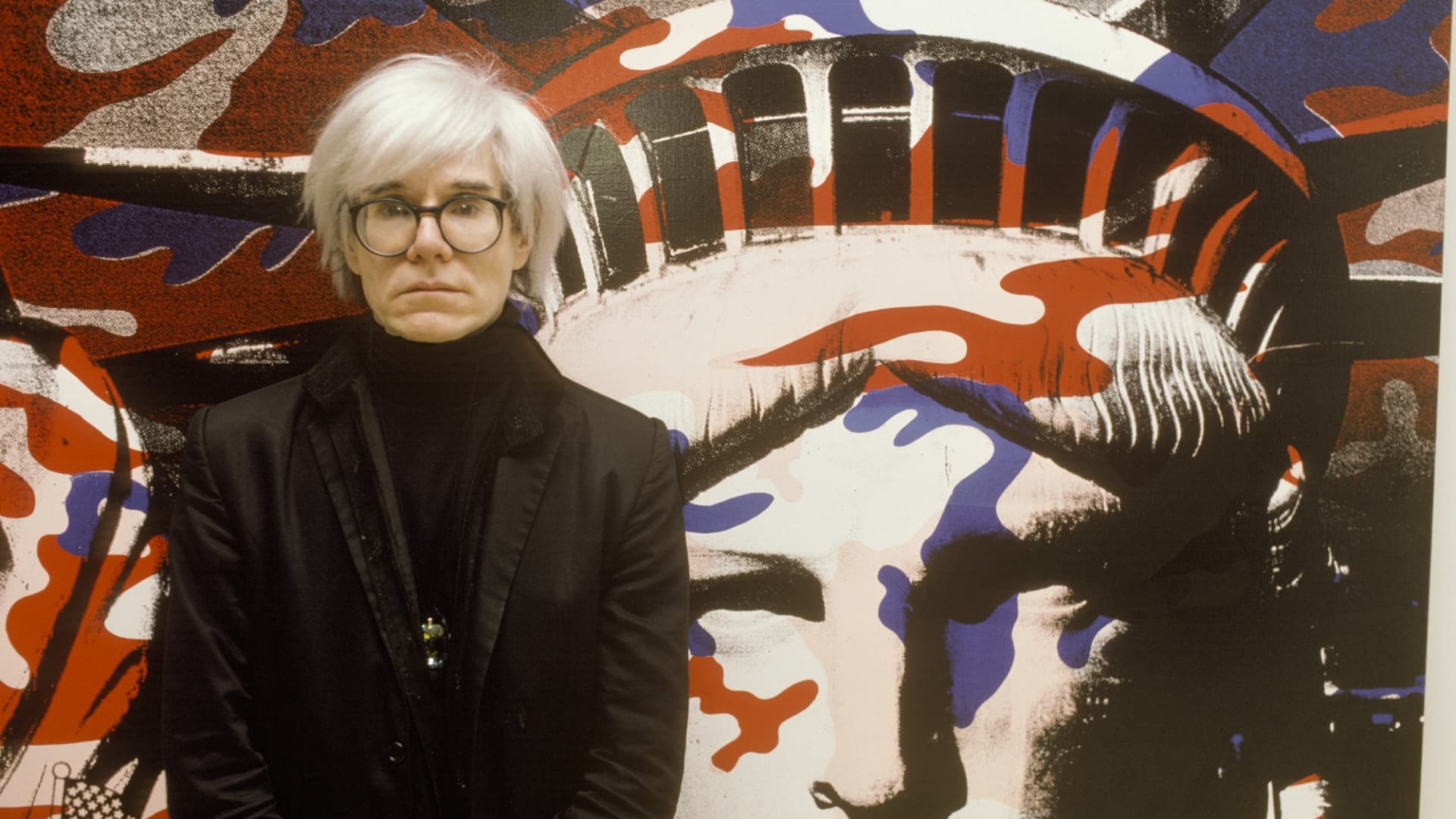Supreme Court rules against Andy Warhol Foundation in copyright case over Prince photo
The Andy Warhol Foundation had defended its right to license artwork that was based on a photo of Prince by Lynn Goldsmith at the Supreme Court.

Andy Warhol paints the Statue of Liberty in Paris, France on April 22nd, 1986.
Francois Lochon | Getty Images
The Supreme Court on Thursday ruled against the Andy Warhol Foundation in a copyright dispute over the use of a celebrity photographer's image of the musician Prince for artwork created by Warhol.
The court ruled 7-2 in favor of the photographer Lynn Goldsmith, who owns the copyright for her 1981 photo of Prince, which had been published at the time in the magazine Newsweek. Justice Sonia Sotomayor wrote the majority opinion.
Justice Elena Kagan wrote a dissent to the decision, in which Chief Justice John Roberts joined her.
Goldsmith had sued the Warhol Foundation for copyright infringement over its licensing of an image called "Orange Prince" to Conde Naste, the parent company of Vanity Fair magazine, in 2016. Orange Prince is one of 16 Warhol silkscreens based on her photo, which Goldsmith only became aware of in 2016.
She previously, in 1984, had granted a limited license to Vanity Fair for the one-time use of the photo as a basis for a Warholl silkscreen that was used to illustrate an article about Prince that year.
Although a federal district court rule in the Warhol Foundation's favor, that ruling was overturned by the U.S. 2nd Circuit Court of Appeals.
The Supreme Court, in its ruling Thursday, considered sole question of whether the Warhol Foundation's claim of so-called fair use of the photo was sufficient to defend against Goldsmith's claim of copyright infringment because Warhol's artwork was "transformative" and conveyed a different meaning or message than the original photo.
"Lynn Goldsmith's original works, like those of other photographers, are entitled to copyright protection, even against famous artists," the court said in the majority opinion. " Such protection includes the right to prepare derivative works that transform the original."
Musician Prince performs onstage at the 36th Annual NAACP Image Awards at the Dorothy Chandler Pavilion on March 19, 2005 in Los Angeles, California.
Getty Images
The opinion goes on to say that, "The use of a copyrighted work may nevertheless be fair if,
among other things, the use has a purpose and character that is sufficiently distinct from the original."
"In this case, however, Goldsmith's original photograph of Prince, and AWF's copying use of that photograph in an image licensed to a special edition magazine devoted to Prince, share sub-
stantially the same purpose, and the use is of a commercial nature."
This is breaking news. Please check back for updates.

 Konoly
Konoly 





























![6 Ways Creators Can Use Meta AI [Infographic]](https://imgproxy.divecdn.com/oWHvh1SOQzpl85udkH3rBnzoX7T5sjKPkJpQi2A8T5w/g:ce/rs:fit:770:435/Z3M6Ly9kaXZlc2l0ZS1zdG9yYWdlL2RpdmVpbWFnZS82X3dheXNfY21ldGFfYWkyLnBuZw==.webp)


